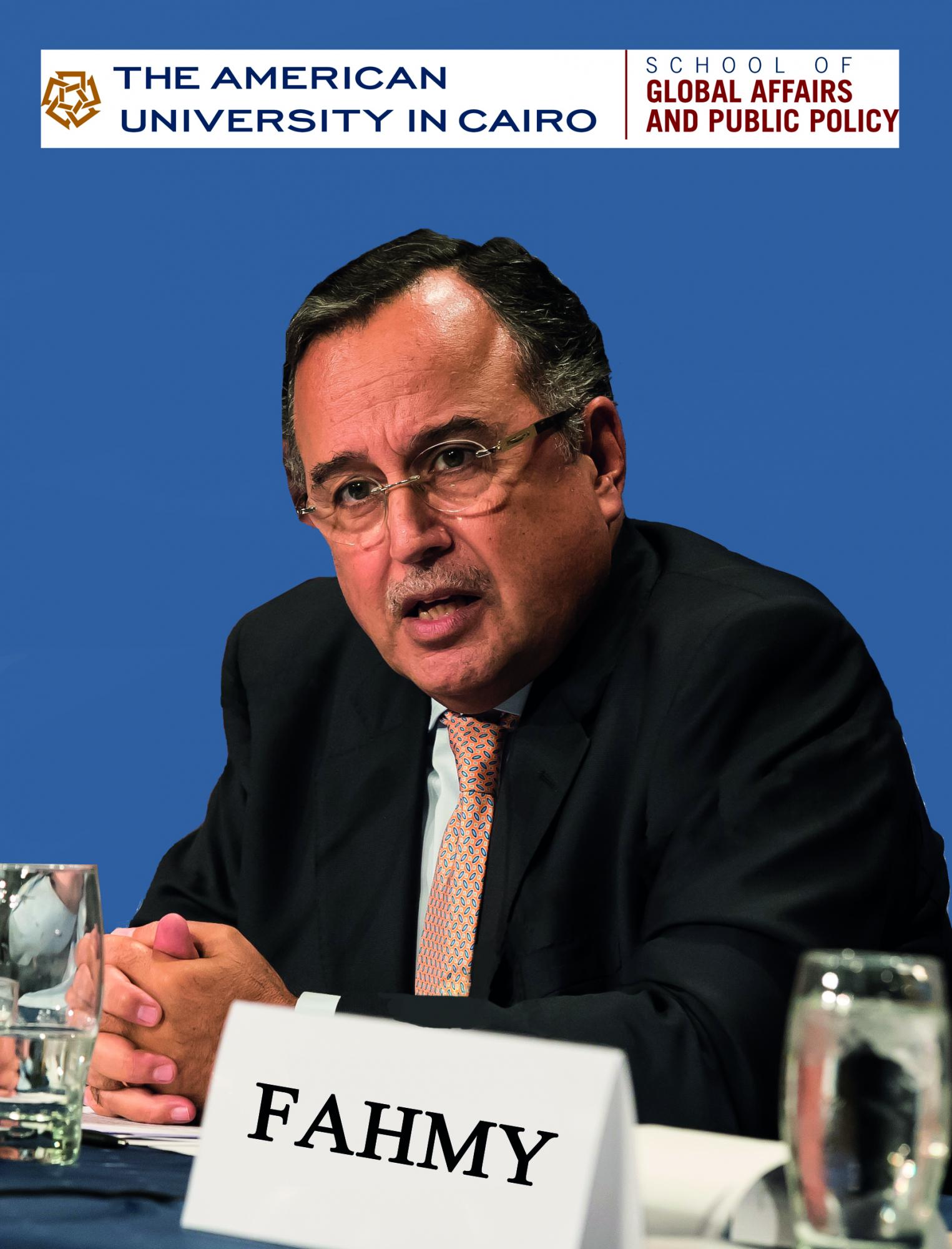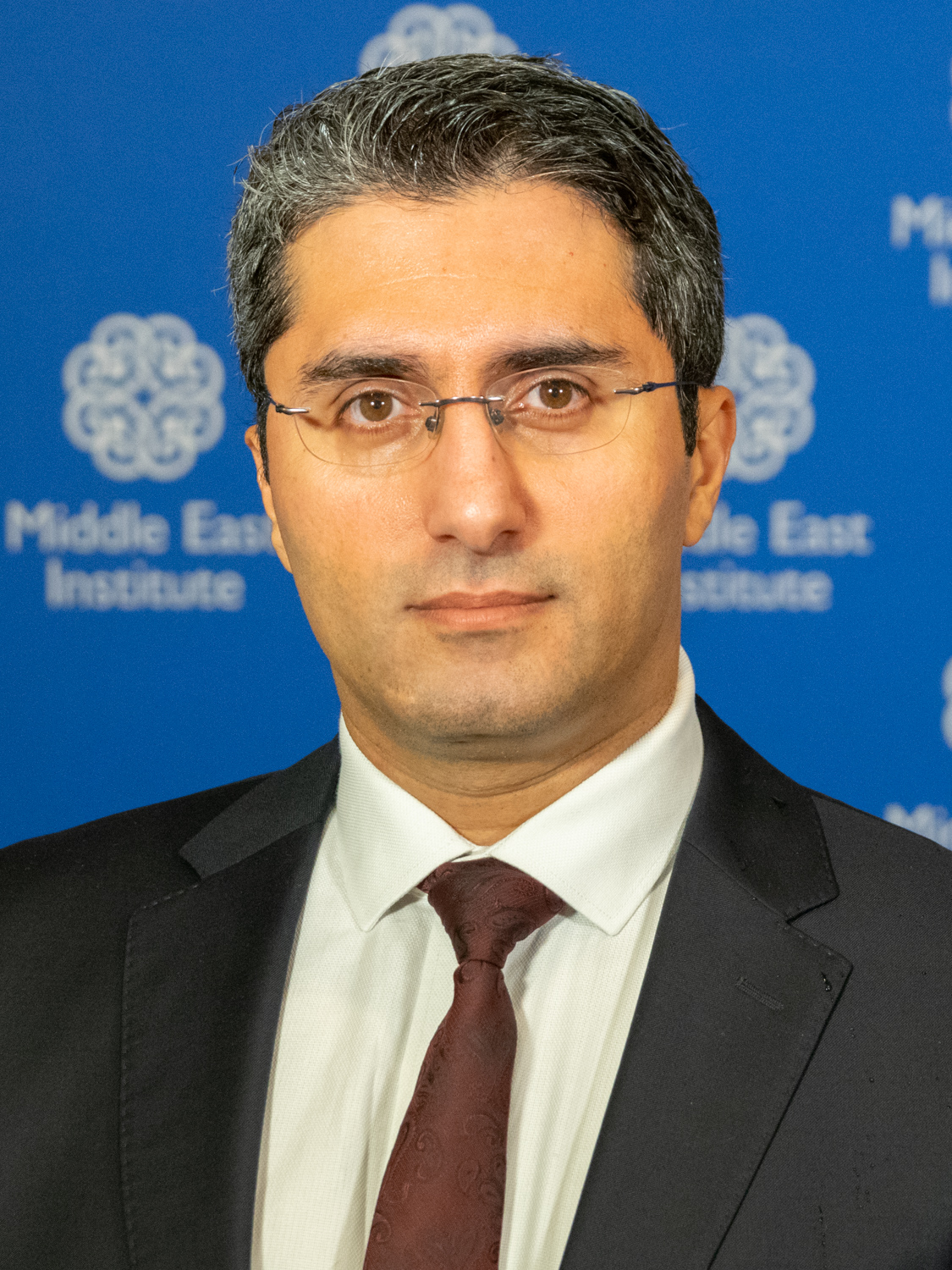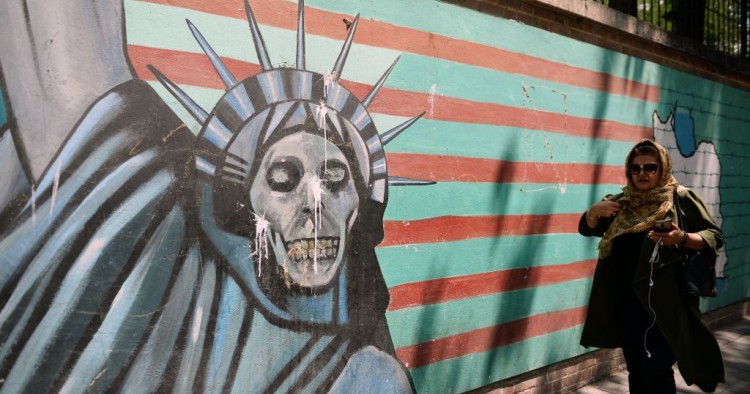In this week's Monday Briefing, contributors Nabil Fahmy, Guney Yildiz, Paul Scham, and Elizabeth Dent provide analysis on recent and upcoming events including the state of US-Iran tensions, Turkish-Russian disagreement on Idlib, Israeli Prime Minister Netanyahu's apparent inability to meet the deadline to form a government, and Iraq's proposal to take custody of captured ISIS fighters awaiting trial.
US-Iran tensions and the need for diplomacy
Nabil Fahmy
Dean of the School of Global Affairs and Public Policy, The American University in Cairo (AUC)

Current assumptions suggest that tensions between the United States and Iran will either lead to war or blow over with the status quo reestablishing itself as if nothing had happened. Neither of these assumptions is true, however.
A full-fledged military confrontation would be suicidal for Iran, and politically unpalatable for America or the international community. Surgical strikes against Iranian strongholds in Syria, Yemen, possibly Iraq, and against politically sensitive targets inside Iran are the most probable measures. Iran would bear a heavy cost in such a confrontation but contained measures would not lead to conclusive results. Its responses would mostly be against soft commercial targets in the Arab Gulf and possibly more concrete measures threatening maritime navigation in the Strait of Hormuz and Gulf of Aqaba.
No one gains from inconclusive military action, or from the continuation of the status quo in the Middle East, with Iran repeatedly pursuing aggressive policies toward its neighbors, except hardliners on both sides in America, Iran, as well as ultimately, Israel. For all three countries, both of these options enhance their credibility, status, and even their raison d'être. Consequently, if neither is achievable, it is not inconceivable to expect continued provocations that would sustain tensions and possibly result in reactive military responses.
However, Iran’s continuous aggressive actions in the Middle East and its infringements on its neighbors should not and cannot be condoned any longer. Without military action, to truly satisfy Arab concerns, particularly in the Gulf, regarding Iran’s policies and ambitions, a robust international diplomatic effort led by the United Nations Security Council should be pursued. The objective would be to convince Iran to adjust its policies toward its neighbors and adopt a set of confidence building measurements to encourage dialogue. The adoption of “A Declaration of Good Neighborly Relations” would be a good first step in this regard.
Nabil Fahmy, a former foreign minister of Egypt, is the founding dean of the School of Global Affairs and Public Policy at the American University in Cairo.
Turkey and Russia at odds over Idlib
Guney Yildiz
Non-resident Scholar

The insurgency in Idlib is Turkey’s most crucial card against Russia and the Assad regime in Syria. The strength of the rebels, most of whom operate directly or indirectly under the control of al-Qaeda-linked Hayat Tahrir al-Sham (HTS), and Turkey’s authority over them, solidify Ankara’s leverage as a potential stabilizer and spoiler of the Astana process, which aims to resolve the Syrian conflict in a way that is acceptable to Russia, Turkey, and Iran, the three guarantors participating in the talks. It is Turkey’s ability to keep the rebels under control that made it possible for Russia to agree to a Turkish military presence in Syria. Up until the last month, Moscow and Ankara were able to agree on delaying an intensification in Idlib. That agreement, however, appears to have broken.
Turkish President Recep Tayyip Erdogan blamed the Syrian regime for “seeking to sabotage” Turkish-Russian relations by launching an offensive in the region. It is not only the Assad regime that wants to torpedo Ankara-Moscow ties. The HTS and pro-Turkish Syrian rebels in Idlib and areas of northwestern Syria under Turkish control also want to push Turkey to adopt a more aggressive stance against Russia and the Syrian regime.
With the insurgents reporting intensified Turkish support in the form of advanced heavy weapons such as TOW missiles and Grad rocket launchers, the proxy war between Turkey and Russia will provide a major test for Turkish-Russian relations. Turkey enjoys political support from the West in regard to preventing an escalation in Idlib. However, Ankara has learned from experience that a breakdown in Turkish-Russian relations will cost them dearly. Pushed into a corner, Ankara is also exploring ways to officially engage with the Assad government via meetings between top intelligence officers, while also engaging in direct or indirect talks with the Syrian Kurds. Another significant step Ankara took was to lift the ban on visits for Abdullah Ocalan, the jailed leader of the Kurdistan Workers’ Party (PKK), who is also regarded as a leader by the Syrian Kurds.
Will Israelis be heading back to the polls in September?
Paul Scham
MEI Scholar
Through a combination of long-standing personal and ideological feuds and an unlikely concatenation of electoral numbers, Prime Minister Benjamin (“Bibi”) Netanyahu’s electoral victory of April 9 seems to have slipped through his fingers, and new elections will apparently be held in September. Unless something changes by midnight tomorrow (May 29), Netanyahu will lose his mandate to form a government, and no one else appears capable of doing so. There are a number of people or events that could theoretically derail this outcome, but all seem unlikely.
Israeli politics are divided into fairly clear “right” and “left” blocs. The former includes “mainstream right” Likud (35 seats), other moderate (4) or extreme (5) right-wing parties, and two “ultra-orthodox” (Haredi) parties (each with 8 seats). It also includes the Yisrael Beiteinu party (5), which is secular, quite right wing, and led by Avigdor Lieberman, a mainstay of right-wing coalitions for decades. Together the right/religious bloc won 65 Knesset seats, a slim but comfortable majority out of the total of 120. The other 55 are held by five opposition parties. Because the election was largely fought on a pro- and anti-Bibi basis, it is theoretically possible but in practice unlikely that other coalition configurations will be tried. Israeli law also makes it difficult to switch parties.
An issue that had split the previous government must be dealt with by the new one: Whether to draft yeshiva (seminary) students, long exempted by law from army service. This is a hot-button issue; the large majority of Jewish citizens who do army service feel aggrieved at the religious exemption, but Haredi rabbis and their followers are equally convinced their religious studies should shield them from being drafted. The right has usually accepted that, but this time Lieberman vows he will never join a government that exempts them. The Haredi parties are equally adamant they will never join a government that drafts them. Without Lieberman, Netanyahu and the right are one crucial vote shy of the 61 votes needed to form a government.
Of course, there is more to it. Bibi is expected to be indicted in the fall for corruption — and if there is no government, he cannot push through legislation to provide him with immunity. It is no secret that Lieberman, like every senior politician, wants to be prime minister, and he hopes to pick up the pieces if Bibi’s coalition disintegrates with his indictment. Of course, half a dozen other right-wing figures will have the same idea.
Bibi’s been called a political magician before, and it’s conceivable he may pull something out of a hat in the short time remaining. Otherwise, new elections will be held in September. The next Knesset is highly unlikely to have an identical configuration, but again will most likely be dominated by the right/religious bloc. But if Bibi is actually indicted by the time it forms a government, all bets are off.
ISIS trials: Western countries must do more to share the burden
Elizabeth Dent
Non-resident Scholar

Earlier this week, an Iraqi court sentenced four French nationals to death for the crime of joining ISIS. Just hours later, France released a statement proclaiming they were against the death penalty and would work to convey that position to Iraqi authorities, but would respect Iraq’s sovereignty.
The sentencing of the four Frenchmen is part of a larger effort to prosecute ISIS foreign fighters after many Western countries have refused their repatriation, citing both legal hurdles and domestic considerations. This includes fighters captured by the Iraqi Security Forces in Iraq, as well as those captured in Syria by the Syrian Democratic Forces (SDF), which lacks both the ability and resources to prosecute or detain fighters in the long term. The Government of Iraq has stated its willingness to take over custody of other fighters from the SDF so long as it is compensated.
The proposal raises a number of concerns, but also appears to be the only way forward at the moment to successfully hold ISIS members accountable for their crimes, given the lack of appetite in the international community for an international tribunal and Western countries’ unwillingness to repatriate their citizens. Iraq has been accused of unfair trials, relying on a vague counterterrorism law as the basis of prosecution, using circumstantial evidence or forced confessions to convict criminals, utilizing questionable interrogation tactics including torture, and doling out sentences without reasonable due process.
However, Human Rights Watch has also said that the Iraqi judicial system has significantly improved these processes in recent months, though legal and judicial reform is still necessary. Iraq also maintains a centralized government structure, has in place a basic judicial system, and — frankly — is the only government willing to take on this task.
In order to support Iraq’s leadership role in this endeavor, coalition countries must maintain unity and alleviate some of the cost burden while continuing their advisory role and utilizing their leverage and influence over Iraq to ensure all courts and detention centers are adhering to international standards. Prosecuting these fighters and bringing them to justice must remain a top national security priority for every coalition country; allowing other regional priorities to overshadow this long-term goal risks upending the hard fought gains that united over 80 countries around the world.
Photo by Fatemeh Bahrami/Anadolu Agency/Getty Images
The Middle East Institute (MEI) is an independent, non-partisan, non-for-profit, educational organization. It does not engage in advocacy and its scholars’ opinions are their own. MEI welcomes financial donations, but retains sole editorial control over its work and its publications reflect only the authors’ views. For a listing of MEI donors, please click here.














